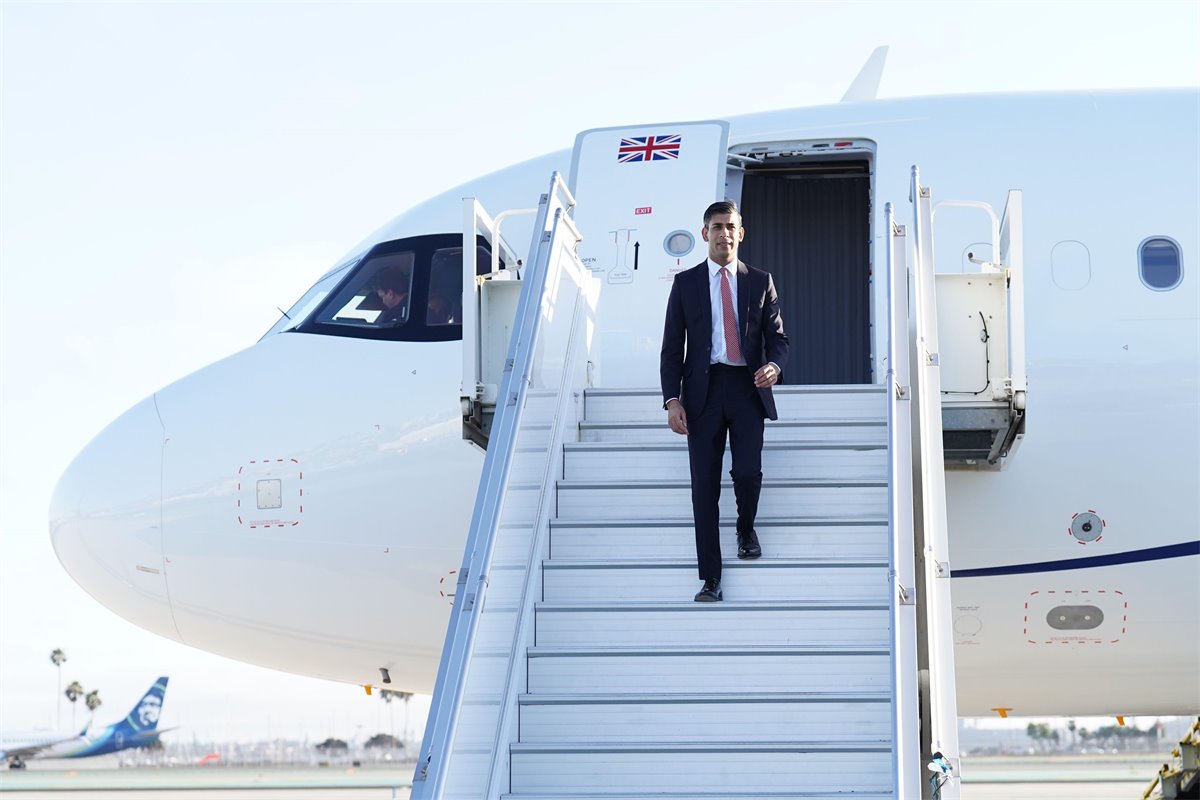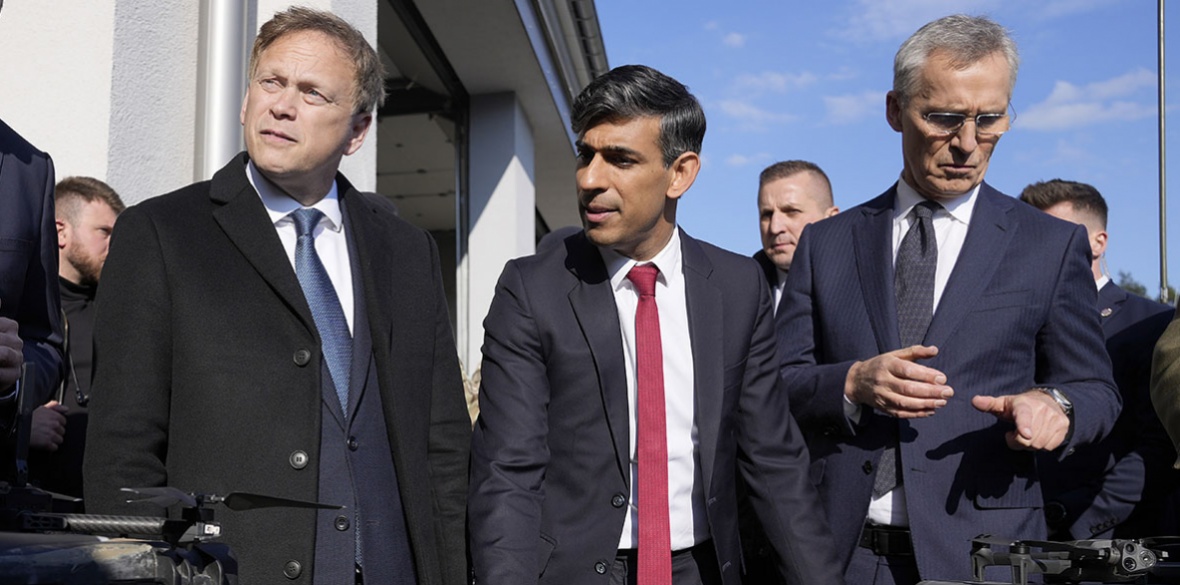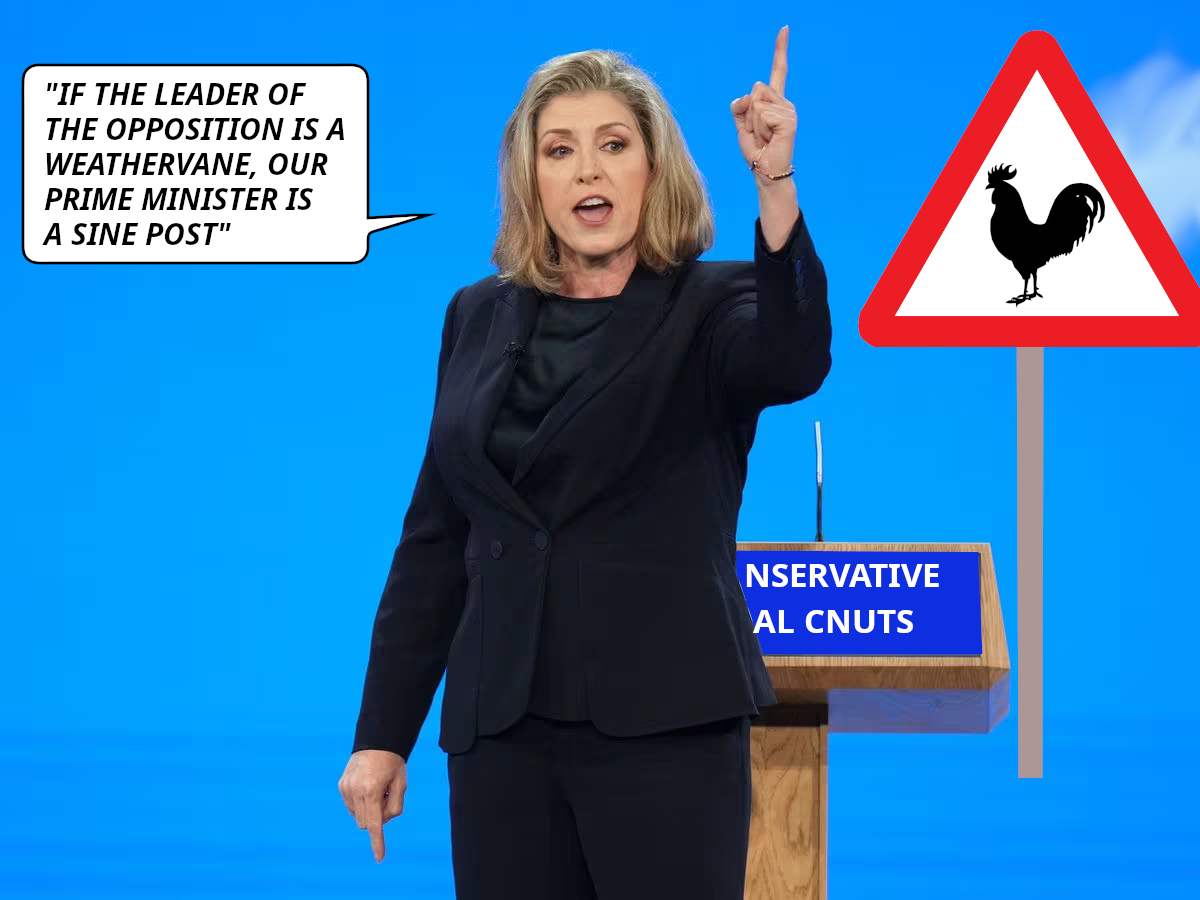Rishi Sunak has finally secured the legislation he needs to support his Rwanda plan. A late night session of ping pong between the two houses of parliament culminated with the passage of the Safety of Rwanda (Asylum and Immigration) Act.
Under this plan, the UK will send some people who have travelled to the UK by small boat to Rwanda. Rwandan officials will consider their asylum claims and determine whether they are a refugee. If a person is found to be a refugee, they will be resettled in Rwanda.
After the European Court of Human Rights stopped the first flight taking off nearly two years ago, the government is now preparing for its second attempt. In a press conference hours before the crucial vote, Sunak said that flights would begin in July.
But there are still logistical and legal obstacles that the government must overcome before any flights can take off.
Finding an airline willing to fly to Rwanda
The government claims to have secured the airfield and charter flights necessary for removing people to Rwanda. However, campaigners who oppose the scheme are targeting these elements of the policy in an attempt to make flights logistically impossible.
In October 2022, the charity Freedom from Torture successfully convinced the airline Privilege Style to withdraw from the government’s Rwanda scheme. Freedom from Torture have now turned their attention to AirTanker, the government’s current preferred airline. They are coordinating protests against the airline and are asking their supporters to write letters opposing AirTanker’s involvement in the scheme.
UN human rights experts have warned airlines that transporting people to Rwanda could make them complicit in human rights abuses.
Further legal challenges
Charities have also been preparing to support asylum seekers to challenge their removal to Rwanda. We can expect to see several types of legal action in the coming weeks.
First, individual asylum seekers will attempt to convince the Home Office to reconsider its decision to send them to Rwanda. After receiving a letter from the Home Office, a person has a short period – typically one week – within which to challenge the decision. People are likely to raise a range of human rights arguments against their deportation. These arguments might include that a person would face persecution in Rwanda because of their sexuality, or that they have complex medical needs preventing their removal.
If the Home Office upholds its decision, a person can challenge their removal in court. Sunak has recently said that there are 150 judges and 25 courtrooms ready to hear these legal challenges.
If their removal is still upheld, a person might take the last-resort step of applying to the European Court of Human Rights for an interim order blocking their deportation. However, this course of action is complicated by the fact that civil servants have been directed to ignore injunctions from the European Court of Human Rights unless a minister says otherwise.
Under international law, the government is bound to follow an order of the European Court of Human Rights. It would be unlawful for a person to be sent to Rwanda in violation of an order of the European court. The union representing senior civil servants has warned that it might take legal action against the government if civil servants are required by ministers to breach international law.
Asylum seekers are also likely to challenge the Rwanda scheme more broadly, arguing that Rwanda remains an unsafe country for them. The government’s new law declares that Rwanda is safe. However, both the House of Lords Select Committee on the Constitution and the Joint Committee on Human Rights have maintained that the safety of Rwanda is a matter for the courts, not parliament, to decide.
If a broader legal challenge is brought, it will be for the courts to determine whether the government’s efforts to improve the conditions in Rwanda – which include drafting a treaty with Rwanda and training Rwandan officials – mean that Rwanda is now safe for asylum seekers.
Sunak and his government have staked a lot on this scheme and the passage of the safety of Rwanda bill brings it one step closer to reality. However, even if the government succeeds in getting flights off the ground, the plan is likely to fail in its quest to stop the boats.
There is no evidence to suggest that the Rwanda plan will deter people travelling across the English Channel to seek asylum.
The tragic deaths of five people in the Channel shortly after the government passed its legislation clearly demonstrates that the threat of deportation to Rwanda is not achieving its aim. Despite now being part of UK law, the Rwanda plan remains a political distraction from a failing asylum system that ultimately costs people their lives.![]()
Natalie Hodgson, Assistant Professor in Law, University of Nottingham
This article is republished from The Conversation under a Creative Commons license. Read the original article.




